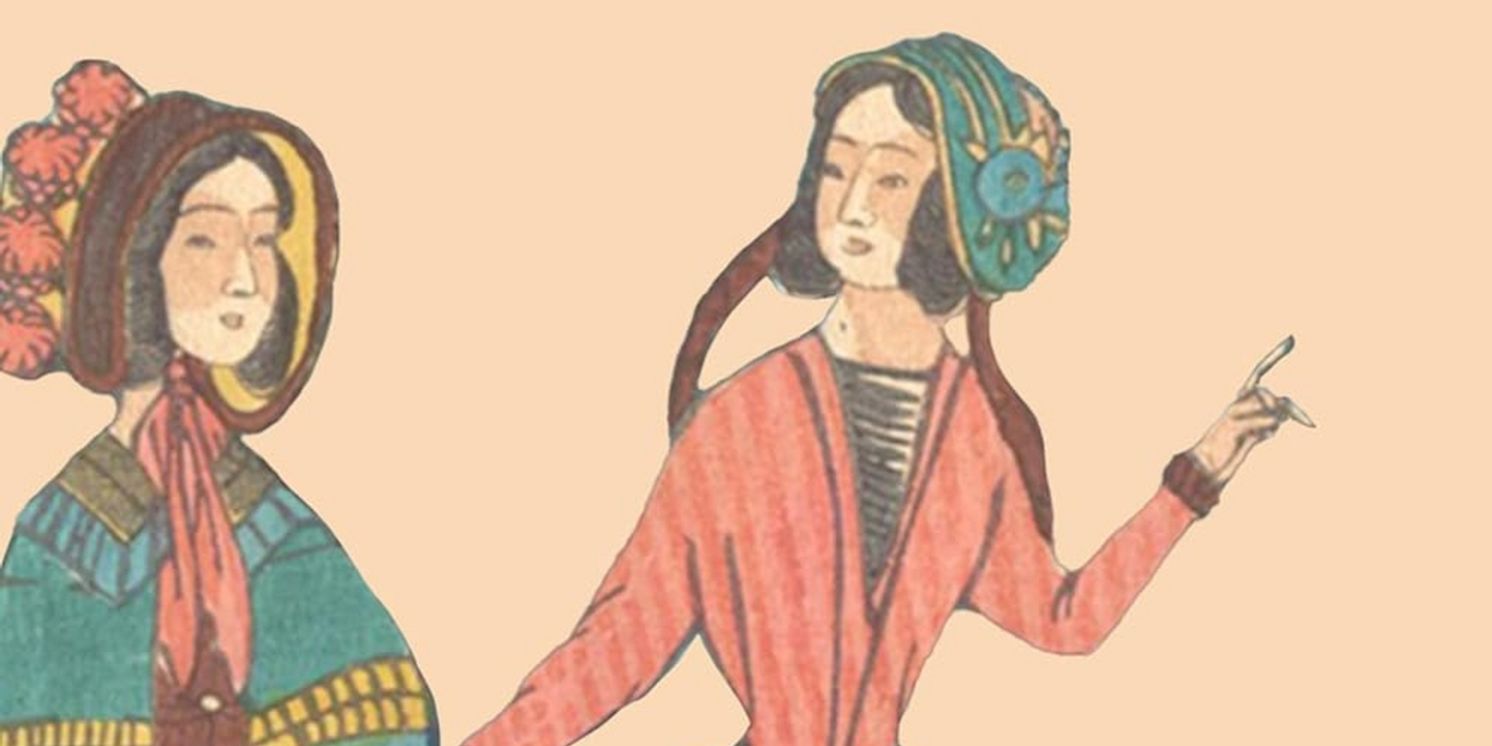UCLA Theater Department Chair Michelle Liu Carriger Wins The Barnard Hewitt Award
The award is given each year to the best book in theater history or cognate disciplines published during the previous calendar year (2023).

Michelle Liu Carriger, the Chair of the UCLA Department of Theater and Associate Professor, has been awarded the Barnard Hewitt Award for Outstanding Research in Theatre History for her book Theatricality of the Closet: Fashion, Performance, and Subjectivity Between Victorian Britain and Meiji Japan. The award is given each year to the best book in theater history or cognate disciplines published during the previous calendar year (2023). It is awarded to works that are innovative in their approach to material, meticulous in their historical scholarship and original in their conclusions.
Carriger's book is a richly illustrated exploration of fashion and its capacity for generating controversy and constructing social and individual identities. It investigates key historical moments that examine the interconnected ways in which gender, sexuality, class and race are created by the everyday act of getting dressed.
"Coming out of theater graduate school, I had started to think about performance concepts of identity and how people use clothing to perform their identities in everyday life," said Carriger. "And as I started following this idea, I found seemingly disparate examples from the same time period but widely distant settings-Victorian Britain and Meiji-era Japan-in which ordinary practices of culture and gender can be seen through clothing choices."
In the book, Carriger examines a number of case studies including: an essay called "The Girl of the Period," the story of middle- and upper-middle class girls dressing too sexy, too loud, and too unladylike, sparking a media frenzy; a report from 1870 Victorian England about two "flashy" girls in the theater behaving badly, winking at people, engaged in horse play, who were arrested for being men in women's dress; the history of the 1870s Japanese emperor who was made over with western fashion after traditional Japanese fashion was deemed too effeminate; and the story of a 21st century student using Victorian aesthetics to pursue a gothic, Lolita-inspired street look.
Carriger's book draws from a range of media, including conservative newspapers, tabloids, ukiyo-e (a genre of Japanese art that flourished from the 17th through 19th centuries), and early photography, all which position dress as a site where the individual and the societal are interwoven, whether in the 1860s and 1870s or the 21st century.
"It is such a massive honor to win this award," Carriger said. "Research and writing can be lonely-it's just you and a laptop trying to make sense of something-and you wonder if anyone will resonate with your work. So having the book in other people's hands is exciting, and returning the ideas to dialogue and engaging with other people on the subject matter is extremely rewarding."
"All of us at UCLA School of Theater, Film and Television congratulate Professor Carriger on this exceptional honor. Her groundbreaking scholarship explores how performance, identity, and culture are deeply intertwined, enriching theater history while offering profound insights into the ways we understand ourselves and society. This recognition underscores the power of scholarship to bridge disciplines and inspire meaningful dialogue within and beyond the arts," said Brian Kite, dean of UCLA School of Theater, Film and Television.
Carriger specializes in the historiography of theater, performance and everyday life, with special focus on gender, race and sexuality, as well as how clothing and fashion can serve as historiographical methods for maintaining bodily links to the past. Formerly a lecturer at Queen Mary, University of London, Carriger is a long-time practitioner of the Japanese Way of Tea ("tea ceremony"), including a yearlong Midorikai fellowship at the Urasenke Gakuen Professional College of Chado. Carriger is also at work on a book about Tea as a contemporary practice of historical embodiment and cultural performance.
Her performance work includes dramaturgy and directing at Brown University and the University of Colorado, Boulder, as well as devised performance and short film with collaborators Molly Flynn and Elise Morrison under the moniker Cabaret Murderess. Carriger received her Master of Arts degree in theatre studies from the University of Colorado, Boulder; completed her Ph.D. in theatre arts and performance studies from Brown University.
Videos

